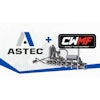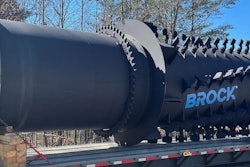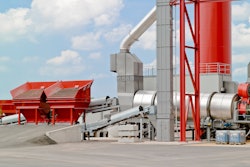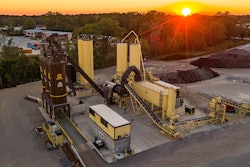
Productivity has been stuck for years in the construction industry, and a few of the main culprits include inefficient workflows, out-of-date methods and manual processes that tie up time and hamper efficiencies. Many tasks could be easily automated and further optimized; yet, inefficiencies run rampant because most businesses aren’t aware of the technologies that are available for leverage. However, there are those who recognize the challenges that ineffective processes cause and decide to knock them out of their daily workflows to supercharge efficiencies with new technology to help.
Who is Clark Asphalt?
Over 40 years ago, Clark Construction of Texas penetrated the construction space, mainly in the business of paving. Four years ago, they purchased an asphalt plant, and that is when Clark Asphalt Products got their start supplying asphalt to the jobs that Clark Construction secured. The plant, located in New Braunfels, TX, is one of the cleanest and nicest facilities this industry has to offer. On site, Clark typically has two loader operators, one groundsman, a plant operator and a plant manager that hold down the fort on a day to day basis.
Clark Asphalt produces around three to four hundred thousand tons of asphalt each year for the projects that they support, which is mostly projects for the city of San Antonio, a few state jobs and some subdivisions. Depending on truck rotation, they typically get about 300-350 tons of asphalt loaded in a day.
Their operation runs with Astec scales, so for a while they were also using Astec’s Weighmate 2000 for their loadout operation. The system did the job for three years, but it is a rather generic system. Billy Ruff, operations manager at Clark Asphalt, needed a way to have some insight into what was happening at the plant while he couldn’t physically be there, so they began looking for another solution with more features and capabilities to take advantage of that could also enable him to have some visibility into his operations while he focused on other aspects of the business.
Improving Quality and Productivity with Easy-to-Use Systems
They worked with Libra to install a new overhead loadout system, which interfaces with both of their Astec scales and their production system. The implementation process took about two or three months before everyone was on board and comfortable in operating the system. With the loadout system, the truck pulls up and the loader operator enters the truck number in and then begins either dual loading or single loading, depending on the number of trucks on the scale at the time.
“With Libra’s loadout system, we are able to easily find job orders, we can easily void or reprint a ticket in seconds – it is just as user-friendly on the technical side as it is on the loadout side," Phillip Tower, plant manager at Clark Asphalt says.
They also implemented Libra Web Services, which enables them to share data from anywhere with mobile connectivity. Now, the foreman on the job can receive alerts about every ticket and look at reports on a smart device without calling the plants. They can also give their customers a portal in so that they can look at the reports and see what is happening on their jobs.
“I’m hardly ever in the tower, so when my general superintendent is on the road, they can understand what is going on at the plant from their mobile device while I am managing other jobs," Billy Ruff, operations manager at Clark Asphalt says. "I used to get several calls about what is going on at the plant in a day – with Web Services, I hardly ever get calls anymore.”
Information from Anywhere
Another solution that Clark Asphalt has recently added to their toolkit is Libra’s Remote Access Client. With this solution, they can log in from the office and see what is going on at the plant, add customers, keep the database up to date and review and print reports. With Remote Access Client, the operator doesn’t have to send reports each day, and their office manager can go into her office whenever she needs to. She doesn’t have to wait until the plant is finished running to get the paperwork that she needs.
Clark Asphalt also recently implemented thermal printers for both of their scales, which enables their truck drivers to stay in the truck after the loadout process is complete. The driver just pulls ahead, grabs his ticket from the kiosk, and gets back on the road, improving their truck flow at the plant. The thermal printers were also extremely beneficial in keeping their operations going during new regulations and special mandates that were being implemented at the start of the coronavirus pandemic.
Before the printers were installed, the plant operator had to send the tickets from the tower down to the truck driver through a tube – much like the tube that is used at the bank. Now, as soon as the truck is loaded and they drive off of the scale, the next truck can start the loadout process because the operator isn’t handling tickets. Ruff estimates that this new process saves them about an hour each day. The printers eliminate the extra touchpoints that would occur if the operator were involved in writing and handing off the tickets. Clark Asphalt’s goal is ultimately to become completely paperless, and they are well on their way.
Clark Asphalt is also planning to implement the Silo Safety System, which is a completely stand-alone system featuring infrared sensors to enable each silo, if and only if, the truck is in the proper position. Two infrared sensor sets indicate when the vehicle is properly placed for loading and silo gate activation. Three sensor set configuration allows for detection of space between the cab and the trailer.
As the truck pulls through to the loadout station, it will break the infrared sensor beams to enable the silo to be opened. With the Silo Safety System, they can ensure that each driver is safe from the damage that can ensue from having a literal ton of hot asphalt drop on top of them. They can also prevent costly ramifications of their trucks being damaged by these materials.



















